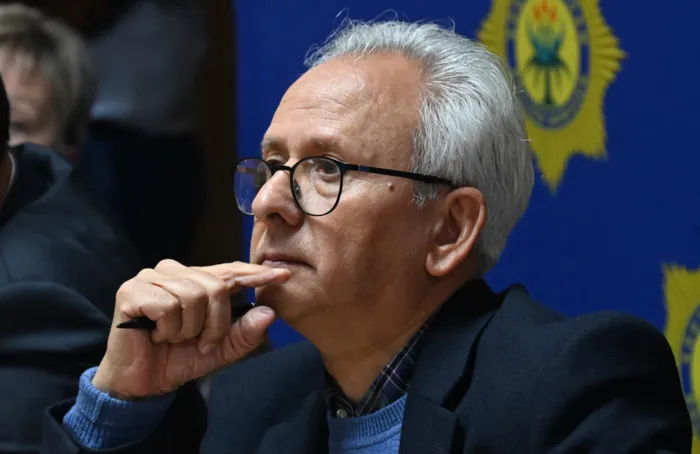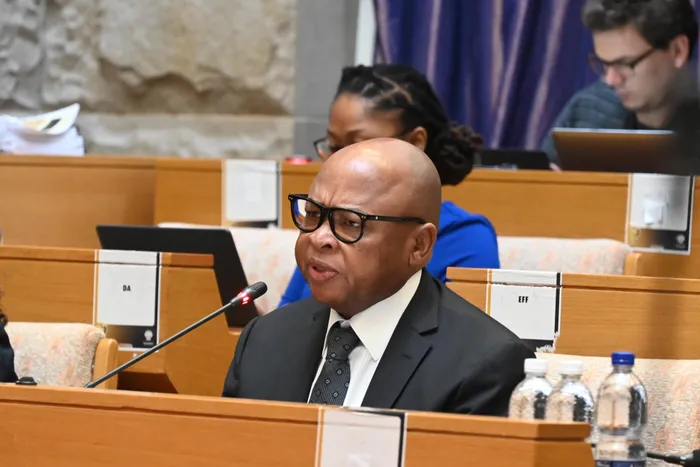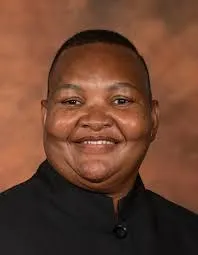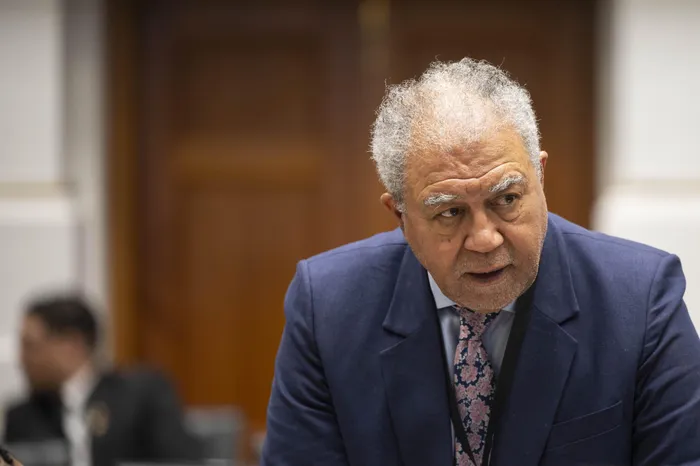Concerns over ministerial powers as Cachalia and Boshielo prepare for inquiry

Acting Minister Firoz Cachalia is set to appear before the parliamentary inquiry probing allegations by KZN Police Commissioner Nhlanhla Mkhwanazi.
Image: Ayanda Ndamane / Independent Newspapers
The Ad Hoc Committee investigating allegations made by KwaZulu-Natal Police Commissioner Nhlanhla Mkhwanazi will on Tuesday start its oral hearings with Deputy Police Minister Polly Boshielo.
The Ad Hoc Committee is set to commence its oral hearings on Tuesday, with Boshielo among the key witnesses expected to testify.
Following her appearance, Acting Minister of Police Firoz Cachalia will take the stand on Wednesday, just days after Deputy Minister of Police Cassel Mathale provided his testimony.
The backdrop of this investigation is a turbulent one, accentuated by revelations made by Mathale regarding the lack of delegated powers conferred upon Boshielo and him by the suspended Minister Senzo Mchunu.

Deputy Police Minister Cassel Mathale giving evidence at the parliamentary inquiry.
Image: Ayanda Ndamane / Independent Media
This has ignited a heated debate amongst committee members, raising critical questions about the value added by deputy ministers, their contribution to the ministry’s efficiency, and whether the financial expenditures on their roles are justifiable.
During his testimony, Mathale defended the presence of multiple deputy ministers, insisting that their roles, although not formally endowed with delegated responsibilities, still necessitate substantial oversight in the ministry's operations.
“The fact that we are not delegated responsibilities does not mean we don’t have responsibilities we deal with in the ministry,” he said.
Mathale also defended the expenditure on the two deputies in the ministry, saying it was consequential that the budget would increase by virtue of there being two deputies.
“There was no way we could have two and not impact budget,” he said.
However, as the committee deliberated on whose testimony would enhance the investigation's efficacy, several members voiced dissent over the necessity of Boshielo and Cachalia appearing in person, preferring that they submit written statements.
MK Party MP David Skosana said: “Can’t we reschedule and get other witnesses to save time? I don’t think it is necessary.”
His sentiment was echoed by ANC MP Khusela Sangoni-Diko, who said: “We support the proposal put by honourable Skosana around deputy minister as well as acting minister that, perhaps, written affidavit would suffice.”

Deputy Police Minister Polly Boshielo.
Image: South African Government
However, Chief Evidence Leader, Advocate Norman Arendse, SC, disagreed with this proposal.
“Even if we don’t call Deputy Minister Boshielo and Acting Minister Cachalia, it is not going to mean that it opens up or presents an opportunity to call any of other witness we discussed here today.
“It is not going to be possible to consult and draw up statements,” said Arendse, adding that increasing the witnesses would require further time to consult.
DA MP Ian Cameron came out in support of Cachalia giving evidence in order to give insight of the ministry since he took office.
“It can be short, but it could be he will give us what the state of the ministry was or is when he came in,” Cameron said.
Sangoni-Diko did not have “fundamental opposition”, while MK Party MP Sibonelo Nomvalo insisted that his testimony would not add value.
“But because there is nobody who is available next week, so we can take him,” he said grudgingly.
EFF MP Leigh-Ann Mathys noted that Cachalia had been on official business to Vietnam with President Cyril Ramaphosa while the parliamentary inquiry and the Madlanga Commission of Inquiry were under way.
“I don’t think we can take him that serious,” Mathys said.

Evidence leader Advocate Norman Arendse SC.
Image: Armand Hough / Independent Newspapers
However, Arendse argued that Boshielo and Cachalia should come.
“We have spent time consulting with them. We spent time drafting statements and exchanged them. There is further consultation today with Deputy Minister Boshielo. Her experience is different from that of Deputy Minister Mathale in the terms of reference this honourable committee must address.”
Arendse reminded that the Ad Hoc Committee was tasked to look at the systemic problems and challenges faced by SAPS, starting with the ministry that was saddled with an acting minister and two deputy ministers.
“We heard they did not receive any delegated powers and authority. It is important to hear how this is to be addressed in the future. Has the current acting minister done so? Has he found SAPS in disarray, as it appears to be the case? What is he doing about it?” asked Arendse.
Also appearing before the committee next week, Thursday and Friday, is Independent Directorate Against Corruption head Andrea Johnson.
mayibongwe.maqhina@inl.co.za